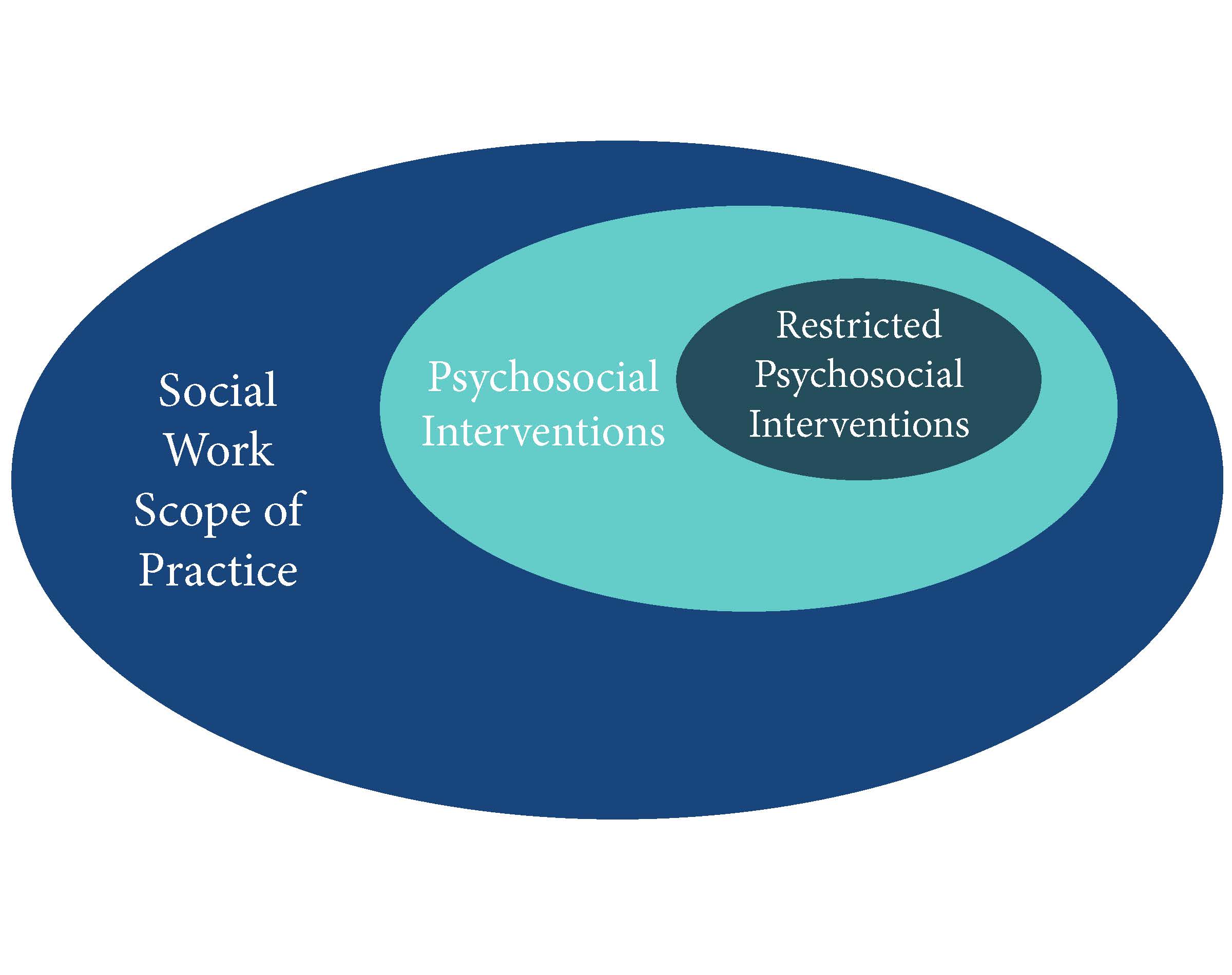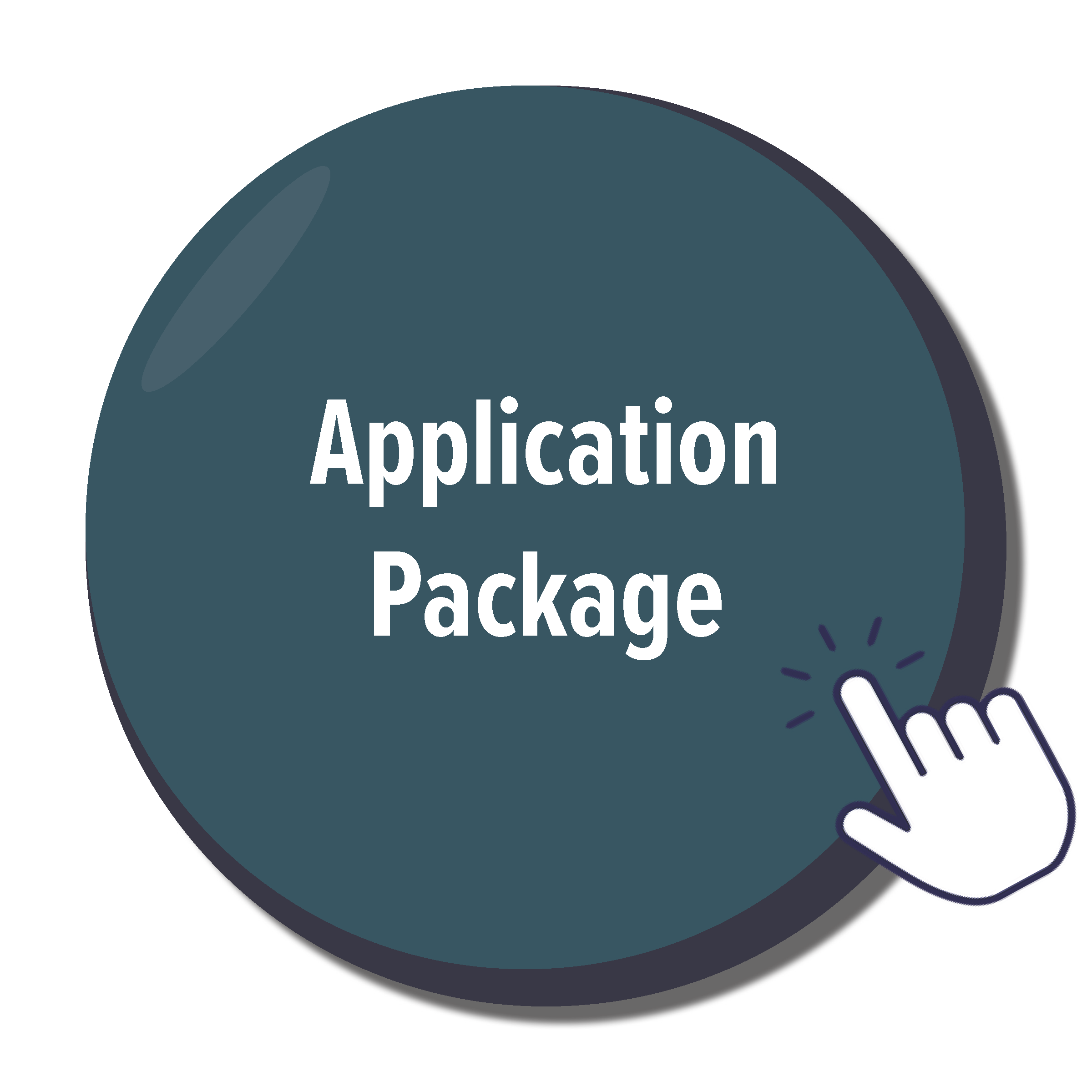Restricted Psychosocial Interventions

Definitions
What is treatment? |
What is a disorder? |
What is a mental health disorder? |
What is a substantial mental health disorder? |
What are
|
Frequently Asked Questions
1. Social work scope of practice
The practice of social work is defined as follows in Schedule 27 of the Health Professions Act: In their practice, social workers do one or more of the following:
- enhance or restore the social functioning of individuals, families, groups, organizations and communities by improving developmental, problem-solving and coping capacities of people and systems
- promote effective and humane systems that provide resources, opportunities and services to people and link people to those systems
- contribute to the development and improvement of social policy, and
- teach, manage and conduct research in the science, techniques and practice of social work, and
- provide restricted activities authorized by the regulations
2. What are psychosocial interventions?
PSYCHOSOCIAL INTERVENTION is a social work service focused primarily on psychological, behavioural, and social factors, applied to improve functioning and quality of life. The service is typically comprised of screening, assessment and planned intervention that may include, but is not limited to, supportive counselling, psychotherapy, referral services, giving information and assistance to individuals, couples, families, and groups. A psychosocial intervention becomes restricted when a psychotherapeutic intervention is performed with an expectation to treat an underlying grossly impairing mental health disorder.
3. What are restricted psychosocial interventions?
RESTRICTED PSYCHOSOCIAL INTERVENTION is carried out in relation to or as part of providing a health service. It includes psychosocial intervention performed with an expectation of treating a substantial disorder of thought, mood, perception, orientation, or memory that grossly impairs judgement, behaviour, capacity to recognize reality, or ability to meet the ordinary demands of life.
The following are not restricted activities:
- activities of daily living, whether performed by the individual or by a surrogate on the individual’s behalf, and
- giving information and providing advice with the intent of enhancing personal development, providing emotional support or promoting spiritual growth of individuals, couples, families and groups.
4. Can social workers perform restricted psychosocial interventions?
Not all social workers have the competence to perform the restricted activity. Social workers must limit their practice to areas in which they have gained competence through education, training, and supervised experience. Social workers without individual authorization may perform the restricted psychosocial interventions under supervision of another authorized regulated health professional (e.g., psychologist).
Social workers who have demonstrated their competence through education, training and supervised practice may apply for individual authorization on their practice permit. This authorization does not replace the employers’, practice supervisors’, and individual social workers’ responsibility to screen/assess the safe and competent practice of restricted psychosocial interventions appropriate within their specific practice setting.
5. When does a social worker need individual authorization to perform restricted psychosocial interventions?
Individual authorization is required when a social worker is
- treating substantial mental health disorders that grossly impair without appropriate supervision and collaboration
- training/supervising others in the practice of the restricted psychosocial interventions
Social workers without individual authorization may perform the restricted psychosocial interventions under the supervision of another authorized regulated health professional (e.g., psychologist).
6. What must a social worker demonstrate to get individually authorized?
Social workers must demonstrate relevant education, training, experience and supervision treating substantial mental health disorders that grossly impair. This is typically performed by social workers with MSW, however, a BSW is considered minimum required education. Training, education, and supervised experience beyond academic coursework and practicum is required.
7. Who can supervise social workers in performing restricted psychosocial interventions while gaining competence to perform individually?
Any regulated health professional who is (a) authorized to perform and supervise the restricted psychosocial interventions and (b) is competent to do so may supervise social workers treating substantial mental health disorders that grossly impair.
Social workers with “authorization for psychosocial intervention-ADD (Addictions only)” are not authorized to provide supervision for the performance of the restricted activity.
Is This a Restricted Activity?
These examples are not exhaustive or black and white. Clinical judgement is required when identifying the client's condition and the clinician's intent to apply a psychosocial intervention to treat it.
DO YOU: |
THIS IS NOT RESTRICTED |
DO YOU: |
THIS IS NOT NECESSARILY RESTRICTED |
DO YOU: |
THIS IS RESTRICTED |
Individual Expectations
Performing restricted psychosocial interventions is a narrow area of practice treating the substantial mental health disorders that are grossly impairing the client's judgement, behaviour, capacity to recognize reality, or ability to meet the ordinary demands of life. Social workers must limit their practice to areas in which they have gained competence through education, training, and supervised experience.
COMPETENCE |
|
PRACTICE
|
|
REGULATORY
|
|
You are responsible for informing ACSW if and when you are
unable to meet any one of the above requirements.
Additional Resources
- Alberta Health (2014) Psychosocial interventions: an interpretive guide to the restricted activity https://open.alberta.ca/publications/psychosocial-interventions-an-interpretive-guide-to-the-restricted-activity
- Health Professions Act Part 0.1, Health Services Restricted Activities https://kings-printer.alberta.ca/documents/Acts/H07.pdf
- Health Professions Restricted Activity Regulation ss. 65-66 https://kings-printer.alberta.ca/documents/Regs/2023_022.pdf
- Social work profession regulation https://www.qp.alberta.ca/documents/regs/2003_082.pdf
- ACSW Standards of Practice https://www.acsw.ab.ca/site/practice-resources
- Social Workers will utilize supervision/consultation that is appropriate to their area of practice throughout their career: Section E.1 Knowledge/Skills/Abilities
- Social Workers will limit their practice to areas in which they are competent: Section E.4 Limits on Practice and Adding New Services and Techniques
- Social workers will perform restricted psychosocial interventions in accordance with Section E.5 Restricted Activity
- Social workers will not perform activities as per E.6 Prohibited Activities
Requirements to apply for individual authorization
| Registration Status | Qualifications | Documentation Required |
Application Processing |
| Must be a registered Social Worker in Alberta |
|
|
|
 |
Please Note: |
| Restricted psychosocial interventions can be performed by RSWs under appropriate supervision and does not require individual authorization |
Application
After reviewing the above content, upload the application and up-to-date resume (your own format). When logged in, clicking the button below will open the restricted activity form library. Please contact restrictedactivities@acsw.ab.ca if there are further questions.


